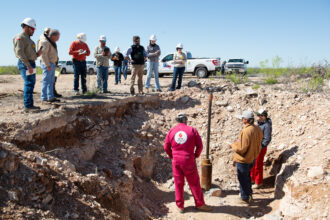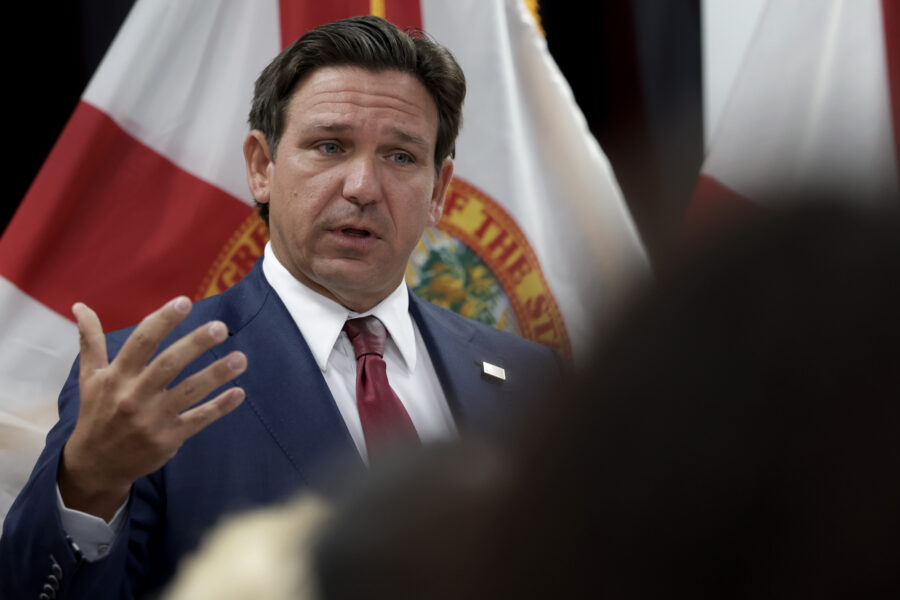Motivated by the success of the women’s march last weekend, as well as the Trump administration’s efforts to revamp the nation’s environmental protection and science policy, advocacy groups have announced a People’s Climate March on Washington for April 29.
A steering committee of more than two dozen organizations is organizing the event. It is supported by the major national environmental groups and an array of social justice, religious, and labor groups, ranging from the Hip Hop Caucus to the Franciscan Action Network to the BlueGreen Alliance. More than 100 groups have endorsed the march.
The People’s Climate effort is recreating the coalition that put together the largest climate march in history: when 400,000 people gathered in the streets of New York City in September 2014 to coincide with the United Nations general assembly.
This time, the groups are turning their sights on Washington, where Donald Trump is embarking on his agenda for his first 100 days, which aims to sweep aside climate protections and expand fossil fuel development.
Climate activist Bill McKibben, the co-founder of 350.org, wrote in a story in Rolling Stone magazine that the purpose of the march was “to show the election didn’t cancel physics.”
“Politicians need to be reminded, even as they do the bidding of the industry, that the rest of us are watching,” McKibben wrote, noting that the march will take place on the 100th day of the Trump administration. “His early surge can’t be avoided, but it can be slowed.”
A key question for the climate movement, however, is whether it can coalesce into a political force beyond turning out protestors in the streets. Just over a year ago, it looked as though climate activists had, indeed, translated their organizing skill into political muscle, with the defeat of the Keystone XL pipeline and the achievement of a global climate treaty in Paris. But that progress has been stopped dead with the election of Trump, who on Monday signed an executive memorandum aimed at resurrecting Keystone XL.
In a sign of how Trump’s actions are energizing the movement, environmental organizers quickly turned out a protest of 1,000 people outside the White House only hours after the pipeline decision. “This morning, Trump made clear that he is putting pipelines over people,” said Mike Tidwell, director of the Chesapeake Climate Action network, which is joining in the effort to organize the march. “We want to make clear: We will never stop fighting.”
There has also been discussion of a march of scientists to defend climate science, but no date has been set.
“Throughout the first 100 days in office, the People’s Climate Movement is organizing a country-wide arc of action, culminating on April 29th in Washington DC in a powerful mobilization to unite all of our movements,” the protest organizers said on their website. “To change everything, we need everyone.”
About This Story
Perhaps you noticed: This story, like all the news we publish, is free to read. That’s because Inside Climate News is a 501c3 nonprofit organization. We do not charge a subscription fee, lock our news behind a paywall, or clutter our website with ads. We make our news on climate and the environment freely available to you and anyone who wants it.
That’s not all. We also share our news for free with scores of other media organizations around the country. Many of them can’t afford to do environmental journalism of their own. We’ve built bureaus from coast to coast to report local stories, collaborate with local newsrooms and co-publish articles so that this vital work is shared as widely as possible.
Two of us launched ICN in 2007. Six years later we earned a Pulitzer Prize for National Reporting, and now we run the oldest and largest dedicated climate newsroom in the nation. We tell the story in all its complexity. We hold polluters accountable. We expose environmental injustice. We debunk misinformation. We scrutinize solutions and inspire action.
Donations from readers like you fund every aspect of what we do. If you don’t already, will you support our ongoing work, our reporting on the biggest crisis facing our planet, and help us reach even more readers in more places?
Please take a moment to make a tax-deductible donation. Every one of them makes a difference.
Thank you,













